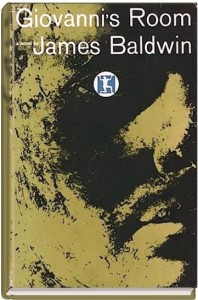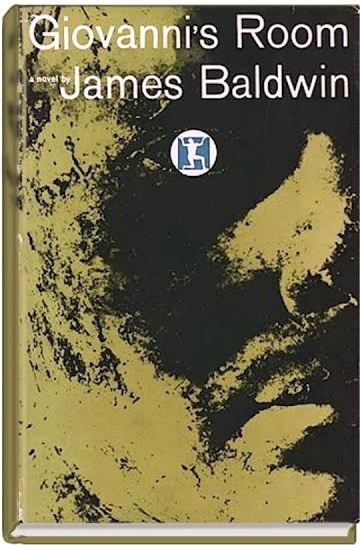WHEN James Baldwin presented a manuscript of Giovanni’s Room to his agent, Helen Strauss, she told him to burn it. It was his second novel. His first, Go Tell It on the Mountain, was a success with readers and critics. His editor at Knopf was eager for a  second success by the young and talented “Negro writer.” But a novel set in Paris about the white American David who falls in love with an Italian named Giovanni was not the book they were expecting—or prepared to publish. Eventually, Dial Press published the book, and the critics praised it for its prose and its honesty. “Even as one is dismayed by Mr. Baldwin’s materials,” wrote New York Times critic Granville Hicks, “one rejoices in the skill with which he renders them.”
second success by the young and talented “Negro writer.” But a novel set in Paris about the white American David who falls in love with an Italian named Giovanni was not the book they were expecting—or prepared to publish. Eventually, Dial Press published the book, and the critics praised it for its prose and its honesty. “Even as one is dismayed by Mr. Baldwin’s materials,” wrote New York Times critic Granville Hicks, “one rejoices in the skill with which he renders them.”
The plot is a simple one. David, living in the south of France, recounts his last year in Paris after his girlfriend Hella has left for several weeks in Spain. David meets Giovanni in the café life of the Left Bank, and the two fall in love, spending days and nights in Giovanni’s one-room basement apartment. This room, with its paradoxical meanings of protective isolation and prison, haunts the novel’s ending. When Hella returns to Paris, David resolves to build a life with her and leaves Giovanni, escaping without a word. David struggles with his decision, and eventually Hella learns the truth about his relationship with Giovanni. The novel ends with Hella leaving David to return to America, Giovanni executed for the murder of a wealthy gay man, and David alone in the South of France.
Perhaps calling Giovanni’s Room a gay novel is a misnomer. “It’s difficult to say when its love story became a gay love story,” wrote Christopher Bram in Eminent Outlaws. In many ways the novel elides its labels. Both David and Giovanni had sexual and emotional relationships with women and men. You could say the tragedy of the story fits with the plotlines of gay characters in much of mid-20th-century American fiction. But Giovanni’s Room has endured, I suspect, not because of how it fits into the era, but how it resisted such plots and definitions of gay love.
In an essay Baldwin wrote in 1949 for Zero magazine titled “Preservation of Innocence,” he boldly criticized portrayals of homosexuals in contemporary American fiction, most acutely in hard-boiled detective novels: “These novels are not concerned with homosexuality but with the ever present danger of sexual activity between men.” For Baldwin, a novel was meant to witness experiences beyond our definition and understanding of human behavior. Baldwin would harness these ideas in Giovanni’s Room. The novel becomes a kind of anti-narrative of homosexuality by making the complex struggle of homosexual desire the extended, self-conscious heart of the story. There is no happy ending. There is no transcendent heterosexual coupling in the aftermath of a homosexual threat that so often concluded such stories. Instead, Baldwin gives us the turmoil of a man longing to escape the definitions of sexual desires forbidden to him—and failing miserably. The novel’s poignancy lies in how it makes us witness this longing and struggle for ourselves.
The following essay was first published in the January-February 2010 issue. — JP
James Polchin teaches writing at New York University and is a frequent contributor to this magazine.







